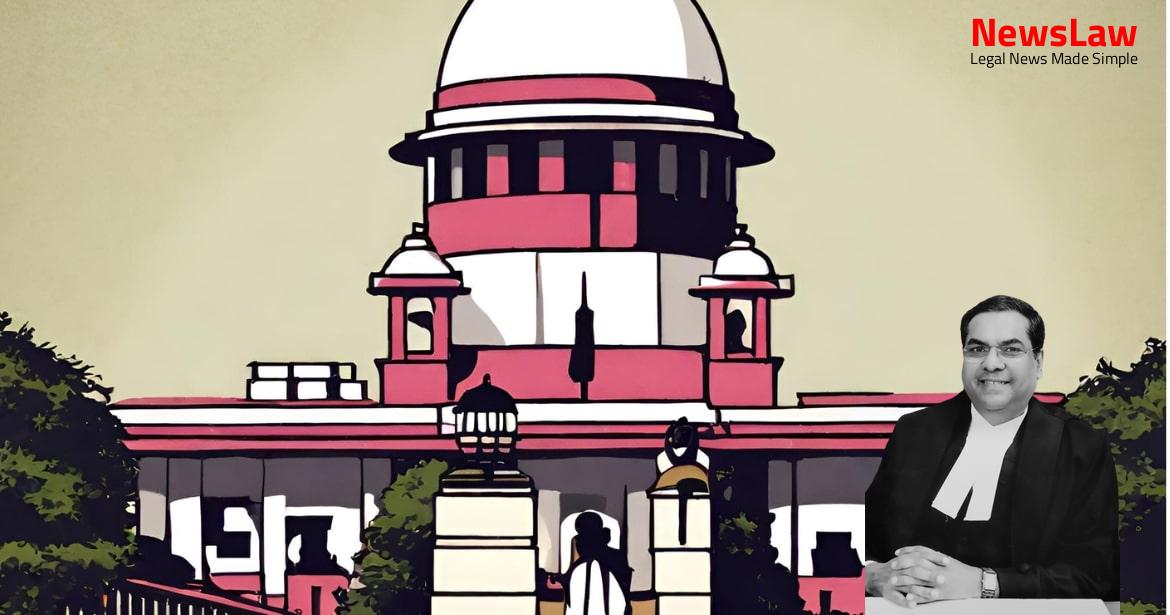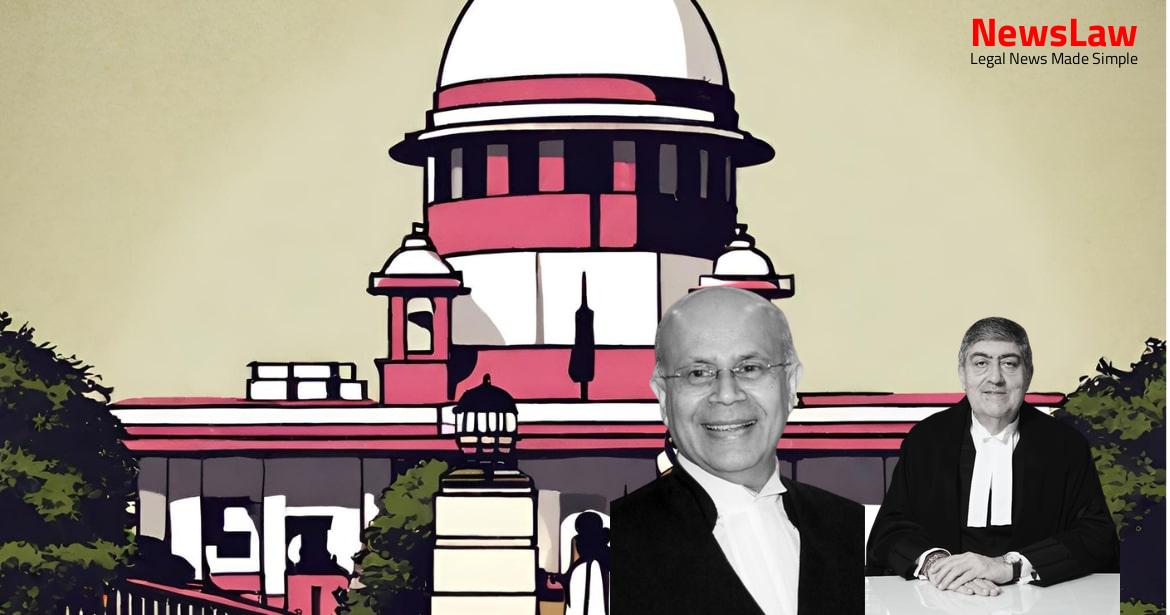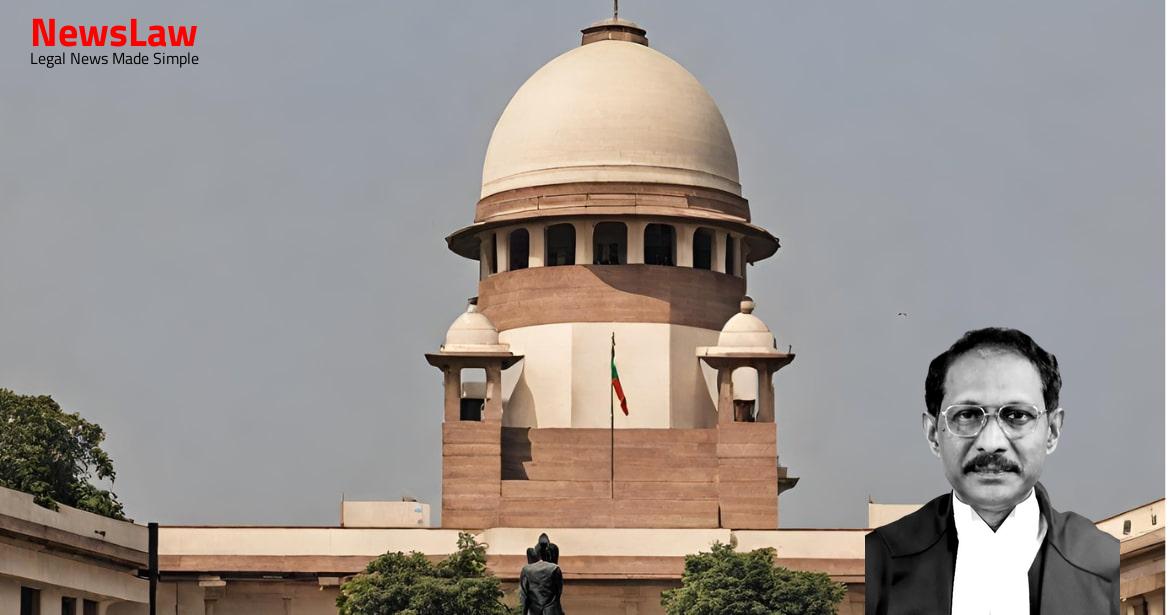In a significant legal battle over the classification of receipts as capital or income, the Supreme Court has reinstated the High Court’s ruling. The case involved the assessment years 1985-86 and 1986-87 and centered on whether receipts of subscriptions should be treated as income. The apex court’s decision holds vital implications for taxation matters, reaffirming the stand taken by the High Court in this dispute.
Facts
- The High Court of Calcutta, in its judgment dated 06.10.2005, allowed the appeal against the Appellate Tribunal’s decision.
- It was determined that the subscription scheme of the appellant company allowed for the possibility of forfeiture of the amounts deposited.
- Due to the forfeiture provision, the amount deposited was considered as income rather than a capital receipt.
Also Read: Judgment on Contract Dispute: PSA Mumbai Investments PTE. Ltd. v. Jawaharlal Nehru Port Trust
Issue
- The issue in this appeal is whether receipts of subscriptions in the hands of the assessee-Company for the previous years relevant to the assessment years 1985-86 and 1986-87 should be treated as income and not capital receipts.
- The decision of the Apex Court in Peerless General Finance and Investment Company Ltd. did not establish an absolute law that all receipts of subscription must be treated as capital receipts.
- The Tribunal was incorrect in treating the first year’s subscription for the assessment years 1985-86 and 1986-87 as capital receipts and thus not taxable.
- The deposits made after 15 May 1987, as directed by the 1987 directions of the Apex Court in the second Peerless case, are applicable to all pending proceedings especially in relation to the assessee.
Also Read: Landmark Judgment: Abhyudaya Co-operative Bank Ltd. vs. Guravs
Arguments
- Mr. S. Ganesh argued that the High Court was incorrect in all counts regarding the case.
- He presented a supplementary affidavit stating that no amount was forfeited post 03.09.1979 under any schemes by the appellant-Company.
- Mr. Ganesh asserted that the deposits made through subscriptions were capital receipts and should not be considered income.
- He highlighted that the judgment in Peerless General Finance and Investment Co. Limited grounded not only on the interpretation of the RBI Circular but also on the nature of receipts as capital.
- Mr. Ganesh referenced judgments by N.M. Kasliwal, J, and K. Ramaswamy, J. in support of his argument.
- Shri Arijit Prasad, representing the Revenue, relied on the observations in Ram Janki Devi v. M/s. Juggilal Kamlapat (1971) 1 SCC 477.
- Arguing based on Ram Janki Devi and Another vs M/s Juggilal Kamlapat, (1971) 1 SCC 477, the advocate emphasized the importance of looking at the true form of the transaction.
- The advocate cited Poona Electric Supply Co. Ltd., Bombay vs Commissioner of Income-tax, Bombay AIR 1966 SC 30 to highlight that ground reality should govern over theoretical considerations.
- The learned Senior Advocate pointed out that the specific issue in question did not directly arise before this Court in the Peerless Finance General case.
Also Read: Supreme Court Judgment: Review Petition in RPC Aspect Case
Analysis
- The Tribunal determined that the deposits in question are capital receipts, not revenue receipts.
- The case involved a finance company collecting deposits and crediting part of them to the profit and loss account, similar to the present case.
- The Court acknowledged that the treatment of subscriptions as income would violate the Companies Act and held that subscriptions are capital receipts.
- The subscriptions received from the public under investment schemes were never forfeited, making them capital receipts.
- The High Court’s judgment in a separate case regarding RBI circular 1987 was deemed not applicable to the present case.
- The nature of the transaction was deemed a capital receipt and not taxable income in the assessee’s hands.
- A decision by the Supreme Court in a similar case supported the categorization of deposits as capital receipts.
- The Allahabad High Court decision reiterated the capital nature of such subscriptions based on the Supreme Court’s ruling.
- The court must look at the true nature of receipts and not just go by bookkeeping entries.
- The primary liability to prove taxation of a receipt lies with the Department.
- Residual non-banking companies must disclose total deposits with interest, etc., in books.
- Amounts like bonuses or concessions must be treated as capital receipts to comply with laws.
- Income Tax Appellate Tribunal rulings can be based on precedent judgments like Peerless case.
- Surrendered certificates may result in surplus income for the assessee.
- Commercial expediency can influence the tax treatment of certain concessions.
- Court decisions emphasize the reality and context of transaction over mere theoretical aspects.
- Receipts must be classified based on their true nature, not just how they are recorded in accounts.
- Rulings have established that there can be no estoppel against the legal position of receipts.
- Profit and loss accounts should reflect only income and expenses as per the Companies Act.
- Contributed amounts deemed as capital receipts cannot be treated as income or shown incompletely.
- The decision in CIT v. Lakshmi Vilas Bank Ltd. [1996] 220 ITR 305 was relied upon by Sri Chopra.
- The Court found the decision in CIT v. Lakshmi Vilas Bank Ltd. to be distinguishable.
- In the Lakshmi Vilas Bank Ltd. case, the deposit was forfeited, and the bank became the full owner of the security.
- In contrast, in the present case, there was no finding of forfeiture of the deposit or the security becoming the property of the assessee.
- The Court concluded that the decision in CIT v. Lakshmi Vilas Bank Ltd. was clearly distinguishable from the present case.
- The business aspect of the matter leads to the conclusion that the receipts were capital receipts, not income.
- The assessee treated subscription receipts as income, which is the theoretical aspect of the transaction.
Decision
- The judgment of the High Court is set aside
- The judgment of the Income Tax Appellate Tribunal is restored
- The appeal is allowed
Case Title: THE PEERLESS GEN.FIN AND INVESTMENT COMPANY LIMITED Vs. COMMNR. OF INCOME TAX
Case Number: C.A. No.-001265-001265 / 2007



